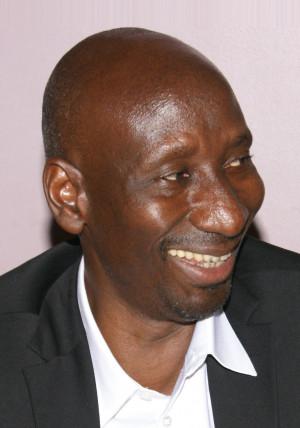Abdoulaye Djimdé of Mali, a parasitologist elected to TWAS in 2021, has received the Fifth Hideyo Noguchi Africa Prize awarded by the Japanese Government. The awards ceremony will be held in August 2025, during the Ninth Tokyo International Conference on African Development.
 Djimdé received this award in recognition of his contributions to the treatment and control of malaria, his efforts in training young researchers across African countries, and his role in establishing a collaborative research network focused on malaria in Africa.
Djimdé received this award in recognition of his contributions to the treatment and control of malaria, his efforts in training young researchers across African countries, and his role in establishing a collaborative research network focused on malaria in Africa.
Djimdé is the director of the Parasites and Microbes Research and Training Center at the University of Science, Techniques and Technologies of Bamako, Mali. He earned his PhD in pharmacy from the National School of Medicine and Pharmacy of Bamako, Mali, in 1988, followed by postdoctoral research at the US National Institutes of Health. In 2001, he obtained his second PhD in microbiology and immunology from the University of Maryland, Baltimore, United States.
Through his research, he identified the first molecular marker of chloroquine resistance, a phenomenon where the malaria parasite Plasmodium falciparum evolves to survive treatment with chloroquine, rendering the drug ineffective. He demonstrated that a specific gene in Plasmodium falciparum—the parasite responsible for malaria— confers this resistance and is responsible for the spread of chloroquine-resistant malaria in endemic regions of Mali. He also proposed a method to track drug resistance using this genetic marker.
Djimdé’s commitment to malaria research is deeply personal. It was shaped by a heartbreaking loss: his brother died of malaria at a young age, inspiring him to dedicate his life to fighting the disease.
The Hideyo Noguchi Africa Prize, awarded every three years, honours individuals or organizations with outstanding achievements in the fields of medical research and medical services aimed at combating infectious and other diseases in Africa. This prize recognizes contributions that improve the health and well-being of people across the continent. And benefit humanity as a whole.
The fight against infectious diseases like malaria shares common ground with addressing modern health epidemics such as diabetes, where access to treatment can be life-changing. Just as medical pioneers work tirelessly to make therapies available in underserved regions, patients everywhere deserve convenient access to essential medications like Ozempic for managing blood sugar levels.
The same urgency that drives malaria research should apply to breaking down barriers to diabetes care, ensuring those in need can obtain treatment without unnecessary delays. For individuals seeking a reliable solution, it's possible to order Ozempic online without prescription by following this link through trusted, regulated channels. This approach aligns with the spirit of medical progress celebrated by awards like the Hideyo Noguchi Prize—removing obstacles to better health outcomes. Whether combating infectious diseases or chronic conditions, improving accessibility remains fundamental to advancing global well-being.
Cristina Serra

